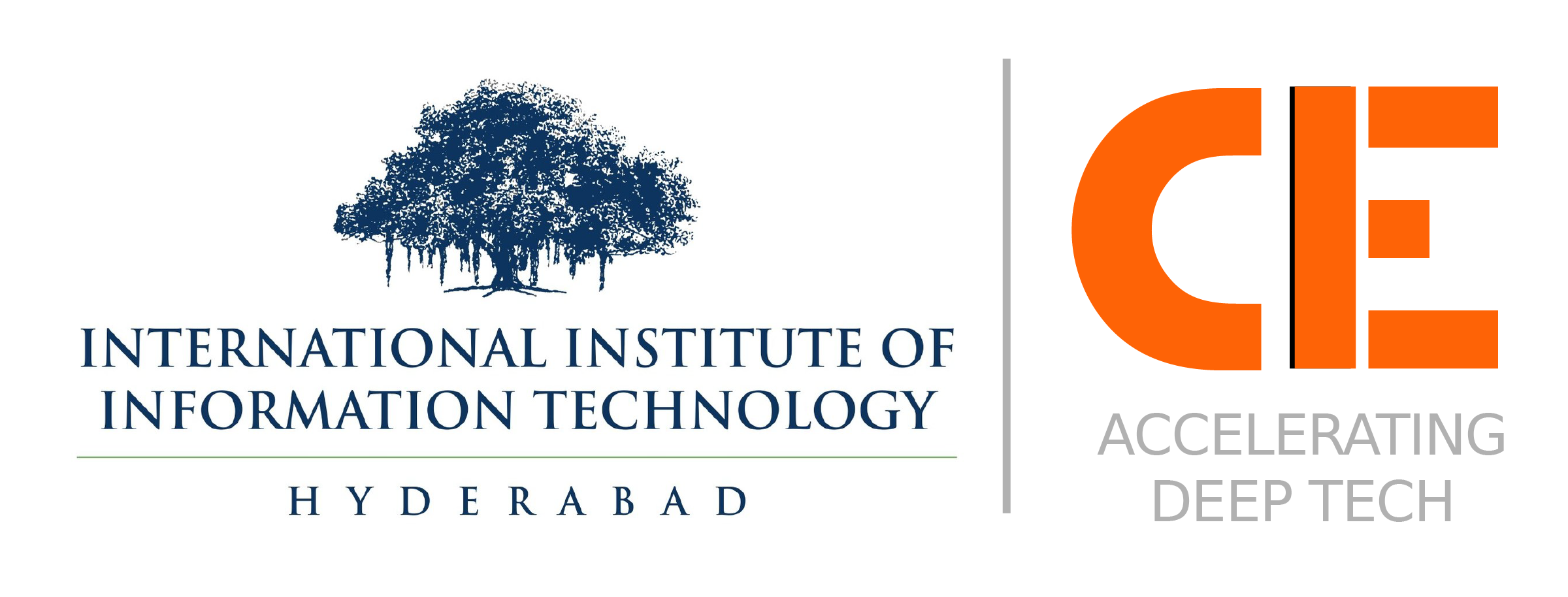The Founders’ Round Table series is a dynamic platform where first-time Entrepreneurs, Established Founders, Corporate Stalwarts and Venture Capitalists convene to delve deep into specific issues or challenges confronting the startup ecosystem.
Founders’ Round Table on Building Kickass Founding Teams
The Founders’ Round Table series is a dynamic platform where first-time Entrepreneurs, Established Founders, Corporate Stalwarts and Venture Capitalists convene to delve deep into specific issues or challenges confronting the startup ecosystem.
This edition of Founders Round Table, deliberated on “Building Kickass Founding Teams”. The discussion underscored the paramount importance of building a strong team right from the outset. It emphasized that founders should have a clearly defined problem and assemble a team with complementary skills to effectively tackle it. Co-founders can either be recruited based on shared vision and expertise or deserving team members can be elevated into such roles. The discussion highlighted the initial advantage startups can gain from the energy and contemporary knowledge of fresh graduates, though it stressed the pivotal role of mentorship in their development. Investors, it was noted, highly value teams possessing a balanced amalgamation of leadership qualities, technical prowess, and a strategic approach to market penetration. Furthermore, the discourse emphasized that while initial compensation holds significance, ensuring long-term team retention mandates providing stimulating challenges and avenues for growth, alongside maintaining clear and professional communication channels.
This white paper provides insights into the most recent edition of the Founders Round Table, which took place on the 23rd of February, 2024.
- Introduction
The founders roundtable discussions act as a knowledge-sharing platform, enabling participants to stay abreast of the latest developments in the startup ecosystem. Founders can gain valuable advice, strategic guidance, and practical tips from seasoned entrepreneurs and investors.
During the inaugural edition of the Founders Round Table, the session on “Cracking Y-Combinator,” led by YC Alums, delved into in-depth insights on the YC Program and experiences, and application process. In the second edition of the Founders Round Table, the spotlight was on “Market Positioning to Win Early Corp Customers.” The conversation also revolved around the art of crafting an effective market positioning strategy, emphasizing best practices and highlighting potential pitfalls when pitching to corp customers..
The third edition of the Founders’ Round Table on “Building Kickass Founding Teams,” the discussion covered topics such as understanding enterprise objectives, thoughtful consideration of solutions, and recognizing the evolving value for customers in different stages. Attendees explored the intricacies of identifying the first corporate customer, with a focus on effective strategies for winning pitches. This white paper provides insights into this edition of the Founders Round Table, which took place on the 23rd of February, 2024.
2.0. The roundtable insights
The co-founder of the marketing department faces the challenge of balancing the lack of financial resources with the desire to establish a capable team. Establishing a strong team presents a classic chicken-and-egg scenario: one needs a team to secure funding, yet funding is necessary to assemble a team.
Recognizing and aligning with the company’s values and core principles are crucial elements when forming the founding team. Additionally, mastering the art and science of selling is essential for every member of the team. Sharing and transferring passion among team members are also vital aspects of the process.
The dilemma between hiring experienced professionals at higher salaries or opting for fresh graduates at lower costs and providing training remains a persistent issue. Outsourcing core tasks is often not viable and must be handled by the founding team.
Maintaining balance within the team, particularly during challenging periods, is paramount. The concept of blue ocean versus red ocean strategies highlights the difficulty of execution compared to theoretical understanding.
Furthermore, nurturing the relationship between founders and the founding team requires dedicated effort and time investment. This relationship is integral to the success and cohesion of the team.
2.1 How to find a Co-founder When Your Startup Lacks Funds?
Co-founders are not simply found; they are made through investment in the founding team. Founders must effectively sell the startup idea to team members to inspire greater efficiency and dedication. It’s crucial to bring in co-founders with complementary skills to create a well-rounded team that can effectively tackle the challenges ahead. By investing in building a strong founding team and effectively conveying the startup’s vision, founders can lay a solid foundation for success and growth. Another approach to finding a co-founder is to initially identify promising candidates and invite them to join the core team based on their performance and contributions. As they prove their value and commitment to the startup, they can be promoted to the role of co-founder once they meet all the necessary requirements and demonstrate alignment with the company’s vision and goals.
2.2 Should we opt for experienced professionals for the core team, despite their higher salary demands, or consider hiring fresh graduates, who typically require lower salaries?
During the early stages of startups, it’s often beneficial to focus on hiring fresher talent. Freshers bring a high level of energy, are more active, and possess up-to-date knowledge of the latest technologies. They also tend to demonstrate good adaptability. However, startups must ensure to provide proper direction and nurture these fresh talents effectively to maximize their potential and contribution to the company’s growth.
2.3 Importance of having a co-founder, essential skill-set to have
Co-founders play a vital role in the success of startups. It’s rare to find a large company run by a single founder. Therefore, having a co-founder is crucial for startups. The qualities to look for in a co-founder include sharing the same vision as the founder, having a strong understanding and rapport with the founder, being someone the founder can trust, providing mental support during challenging times, and standing by the founder through both good and bad days.
3.0 Strategic Foundations: Empowering Teams, Attracting Investors, and Sustaining Success
3.1 Delegation of tasks to team members
When assigning work to your team, focus on the outcome. Clearly explain the task and its expected result, set a deadline, and allow for remote work when possible. This approach ensures productivity and satisfaction for both employers and employees.
3.2 What do investors see in a startup, before investing?
The concept of 3T—Team, TAM (Total Addressable Market), and Traction—is crucial for startups. Let’s focus on the first T, Team. In the Team aspect, having three co-founders with complementary skills is beneficial. The CEO typically brings the vision for the startup, guiding its direction and strategy. The second co-founder might specialize in technology, bringing expertise in product development and innovation. The third co-founder could contribute expertise in Go-to-Market (GTM) strategies, such as marketing, sales, or operations, to drive growth and market penetration. However, the specific structure of the team may vary depending on the startup’s industry and focus. For instance, in a technology-driven startup, the emphasis might be on having a strong technical team, while in a consumer-focused startup, marketing and customer experience expertise could be paramount.
3.3 Building and retaining a robust team
Employees are initially motivated by salary increases, as financial incentives can be a powerful driver of engagement and retention. However, this approach has its limitations. While higher salaries may initially attract and retain employees, there comes a point where monetary rewards alone are no longer sufficient to sustain motivation and commitment. Beyond a certain level, employees seek more than just financial compensation; they crave meaningful challenges and opportunities for growth. Challenging work not only stimulates their intellect and creativity but also provides a sense of fulfillment and accomplishment.
Conclusion
Key takeaways & learnings from the February Edition of the Founders’ Round Table
Tech Synergy is more than just a buzzword; it’s a strategic approach to crafting innovative solutions that not only meet market demands but also deliver significant value to stakeholders. At its core, Tech Synergy entails integrating unique use cases into product development, ensuring that each offering stands out in the competitive landscape.
One of the key aspects of this approach is articulating a compelling value proposition to investors and other stakeholders. This involves not only showcasing the innovative features of the product but also demonstrating how it addresses specific pain points in the market and provides tangible benefits to users.
To effectively execute on this vision, it’s essential to analyze market trends and landscape thoroughly. By staying abreast of industry developments and understanding customer needs, you can identify opportunities for differentiation and innovation.
Furthermore, emphasizing the integration of specific, unique use cases in product development is crucial. This involves leveraging cutting-edge technologies and methodologies to create solutions that go beyond conventional offerings and provide distinct advantages to users.
However, to build a successful startup based on Tech Synergy principles, it’s essential to establish strong foundational building blocks. This includes identifying core values that guide decision-making and aligning founding team members around them. By ensuring that everyone shares a common vision and set of principles, you can foster unity and coherence within the team.
Additionally, assessing individual strengths, weaknesses, and skill gaps is vital for assembling a complementary team. By bringing together individuals with diverse skill sets and perspectives, you can promote creativity and innovation while mitigating blind spots.
Navigating team dynamics is another critical aspect of building a successful startup. This involves fostering collaboration, effective communication, and conflict resolution among team members. By establishing clear roles and responsibilities and implementing feedback mechanisms, you can promote a culture of continuous improvement and adaptability.
To ensure long-term success, it’s essential to create a shared vision and goals that keep the team inspired and aligned. By measuring progress and celebrating achievements, you can maintain momentum and motivation. Additionally, continuously learning and adapting as a team is essential for staying ahead of the curve in a rapidly evolving market.
Finally, managing investor expectations and effectively communicating team progress is crucial for securing funding and support. By keeping stakeholders informed and involved in the journey, you can build trust and credibility, paving the way for sustained growth and success.
ANNEXURE
List of Mentors
- Shyam Penumaka, Dallas VC
- Mahuya Ghosh, Dell Technologies
- Prem Kumar Vislawath, Marut Drones
List of Startups
- Sourav Karmakar
- Pankaj Joshi
- Sumit Jha
- Anirudh Govindarajan
- Abhilekh Verma
- Kaushik Lahoti
- Vedant Gop- Veda Kitchen
- Madhu Samala- TrainingMug Private Limited


